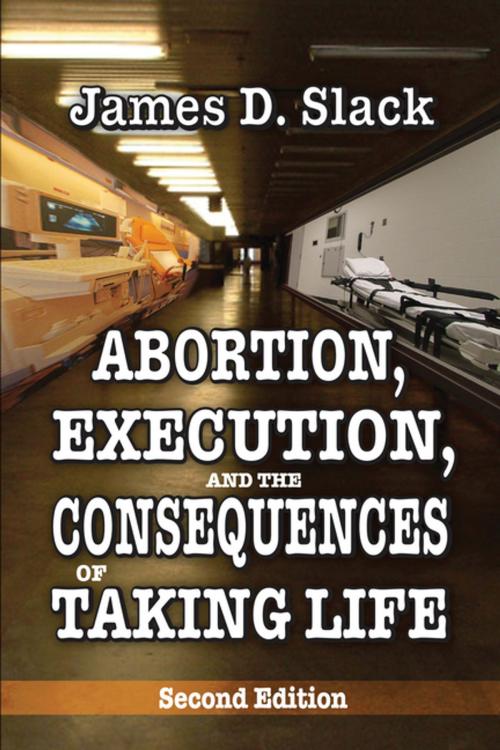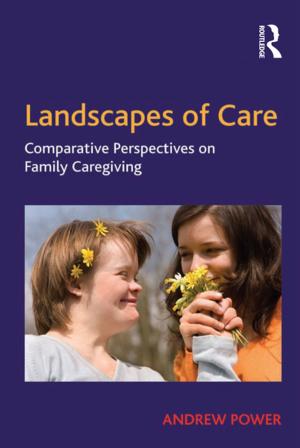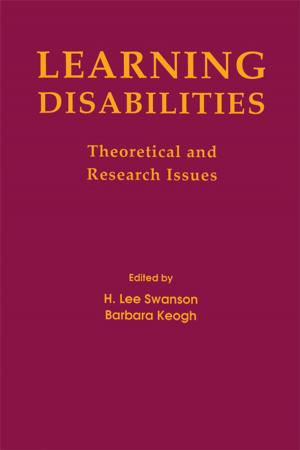Abortion, Execution, and the Consequences of Taking Life
Nonfiction, Religion & Spirituality, Philosophy, Christianity, Christian Life| Author: | James D. Slack | ISBN: | 9781351534277 |
| Publisher: | Taylor and Francis | Publication: | September 8, 2017 |
| Imprint: | Routledge | Language: | English |
| Author: | James D. Slack |
| ISBN: | 9781351534277 |
| Publisher: | Taylor and Francis |
| Publication: | September 8, 2017 |
| Imprint: | Routledge |
| Language: | English |
This book focuses on the relationship between public morality and personal action in the American political community. It emphasizes the responsibilities of citizens and government to find and confirm truth, looking to specific sources: religious scripture and empirical events. Recognizing that we have a natural preference for distraction and distance from both sources of truth, Slack uses qualitative, open-ended interviews and direct observation to uncover the intimate consequences of life-taking in open societies.
Abortion and murder/capital punishment are instances in which there is a sequence of events that result in life-taking. The act of murder denies the sanctity of life of someone else. Abortion and capital punishment also deny the sanctity of the lives of others. The intimacy of life-taking is not typically acknowledged or remains hidden. This makes it difficult to assess the consequences for victims, survivors, and the political community as a whole. As a result, there is only a tenuous link between public actions that question the sanctity of human life and the moral compass professed by the American democracy.
The volume presumes a theocentric foundation envisioned by the American Founders. It explores the model's first source of truth, biblical scripture, as it applies to the public actions of murder, abortion, and capital punishment. Then it investigates the intimate reality of these acts. These realities are examined in a variety of settings, resulting in a mosaic pattern of public action about capital punishment and abortion. Slack underscores the importance of government's role of providing outward justice, as well as the citizen's responsibility to be supportive of government tasks in order to reconcile the reality of life-taking with the moral compass professed in the American political community.
This book focuses on the relationship between public morality and personal action in the American political community. It emphasizes the responsibilities of citizens and government to find and confirm truth, looking to specific sources: religious scripture and empirical events. Recognizing that we have a natural preference for distraction and distance from both sources of truth, Slack uses qualitative, open-ended interviews and direct observation to uncover the intimate consequences of life-taking in open societies.
Abortion and murder/capital punishment are instances in which there is a sequence of events that result in life-taking. The act of murder denies the sanctity of life of someone else. Abortion and capital punishment also deny the sanctity of the lives of others. The intimacy of life-taking is not typically acknowledged or remains hidden. This makes it difficult to assess the consequences for victims, survivors, and the political community as a whole. As a result, there is only a tenuous link between public actions that question the sanctity of human life and the moral compass professed by the American democracy.
The volume presumes a theocentric foundation envisioned by the American Founders. It explores the model's first source of truth, biblical scripture, as it applies to the public actions of murder, abortion, and capital punishment. Then it investigates the intimate reality of these acts. These realities are examined in a variety of settings, resulting in a mosaic pattern of public action about capital punishment and abortion. Slack underscores the importance of government's role of providing outward justice, as well as the citizen's responsibility to be supportive of government tasks in order to reconcile the reality of life-taking with the moral compass professed in the American political community.















